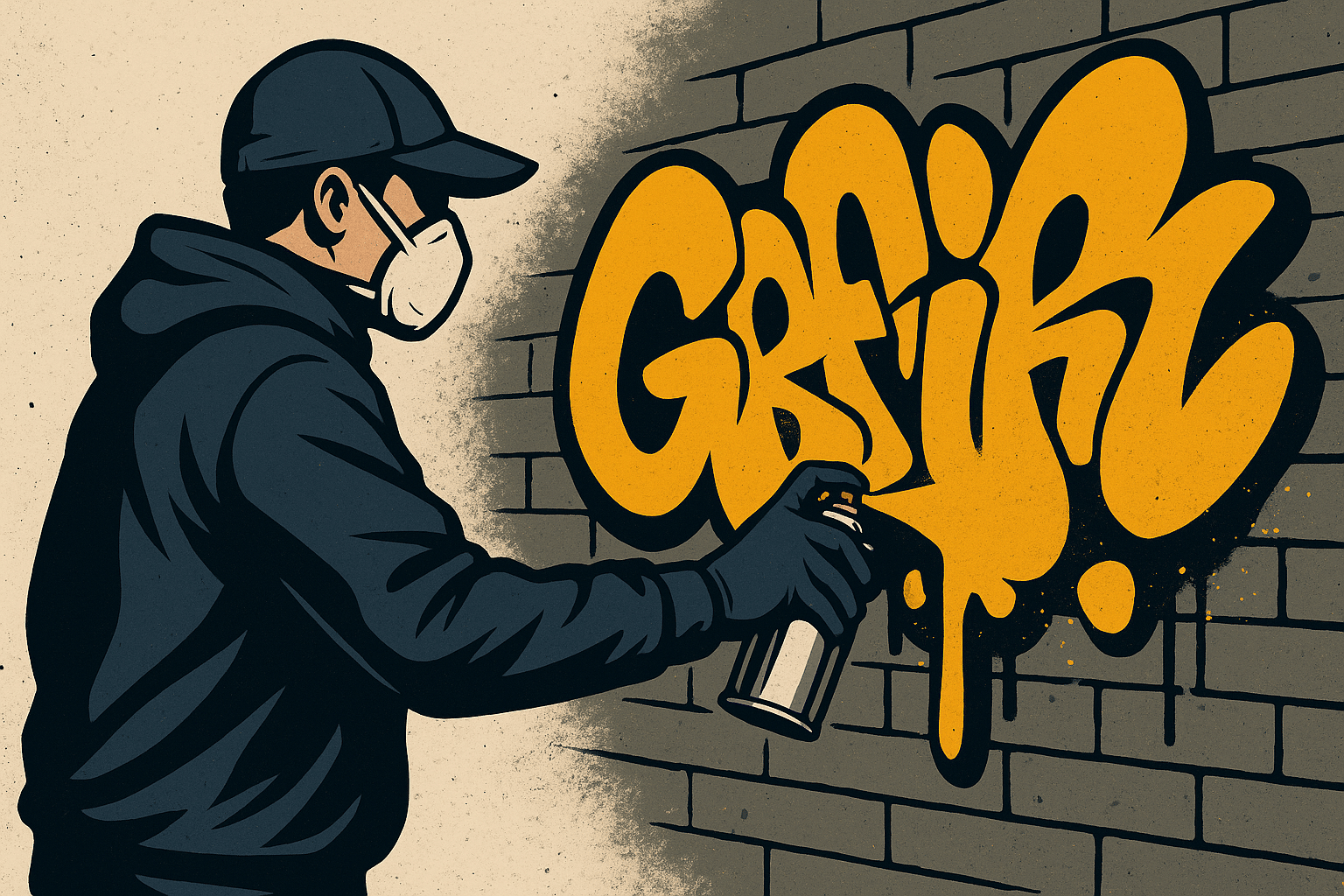
Graffiti might be considered art by some, but under Maryland law, it’s often treated as a criminal offense. Whether it’s tagging a building, etching a name into glass, or spray-painting public property, graffiti can lead to serious consequences—including jail time, fines, and a permanent criminal record.
If you or your child is facing graffiti charges in Prince George’s, Charles, Calvert, or St. Mary’s Counties, understanding the law is the first step to protecting your rights.
What Is Considered Graffiti Under Maryland Law?
Maryland does not have a specific statute labeled “graffiti,” but these acts are prosecuted under Criminal Law § 6-301, which covers malicious destruction of property. This includes:
- Spray-painting walls, fences, or vehicles
- Drawing or etching on public transportation or buildings
- Defacing street signs, monuments, or sidewalks
The key legal factor is whether the property was damaged, defaced, or destroyed without the owner’s consent.
Is Graffiti a Misdemeanor or Felony in Maryland?
That depends on the value of the damage:
- Less than $1,000 in damage: Charged as a misdemeanor, punishable by up to 60 days in jail and/or a fine up to $500.
- More than $1,000 in damage: Charged as a misdemeanor with enhanced penalties—up to 3 years in prison and/or a fine up to $2,500.
Repeat offenses or graffiti related to gang activity can also result in more severe penalties.
Can Juveniles Be Charged for Graffiti?
Yes. In many graffiti cases, especially in schools and neighborhoods, juveniles are the ones accused. Maryland law allows for juvenile charges for property damage, which can result in:
- Probation
- Mandatory community service or restitution
- Participation in diversion programs
However, if the damage is extensive, a juvenile can be charged as an adult, especially if the act involved arson, hate symbols, or repeat offenses.
Can I Be Sued for Graffiti?
Yes. In addition to criminal charges, property owners may file a civil lawsuit for the cost of repairs or restoration. Maryland law allows courts to order restitution—meaning the defendant must pay for the damage—even if the criminal case results in probation.
In juvenile cases, parents may be held financially responsible under Maryland’s parental liability laws.
Defending Against a Graffiti Charge in Southern Maryland
If you’re facing charges, don’t assume it’s a minor issue. A graffiti conviction can follow you for life—impacting employment, college admissions, and military service. Possible defenses include:
- Lack of intent: Accidental damage may not meet the legal definition of malicious destruction.
- Mistaken identity: Surveillance footage or eyewitnesses can be unreliable.
- Consent: If the owner allowed the markings (even verbally), the act may not be criminal.
An experienced Southern Maryland criminal lawyer can help you evaluate the evidence and negotiate alternatives like diversion, community service, or dismissal.
Call for a Free Consultation
If you or a loved one is facing a graffiti charge in Prince George’s, Charles, Calvert, or St. Mary’s County, don’t wait. Contact us today for a confidential, no-obligation consultation. We’ll explain your rights and help you take the next step toward putting this behind you.
